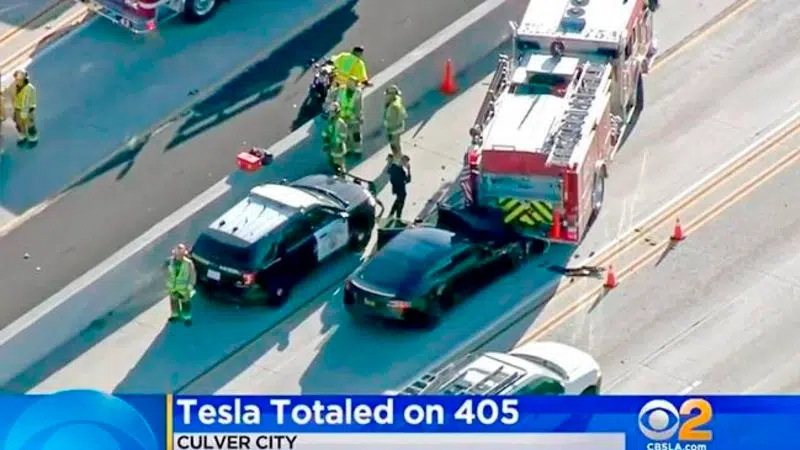
NTSB: Autopilot flaw, driver inattention caused Tesla crash
DETROIT — A design flaw in Tesla’s Autopilot semi-autonomous driving system and driver inattention combined to cause a Model S electric car to slam into a firetruck parked along a California freeway, a government investigation has found.
The National Transportation Safety Board determined that the driver was overly reliant on the system and that Autopilot’s design let him disengage from driving.
The agency released a brief report Wednesday that outlined the probable cause of the January 2018 crash in the high occupancy vehicle lane of Interstate 405 in Culver City near Los Angeles.
The findings raise questions about the effectiveness of Autopilot, which was engaged but failed to brake in the Culver City crash and three others in which drivers were killed since 2016.


